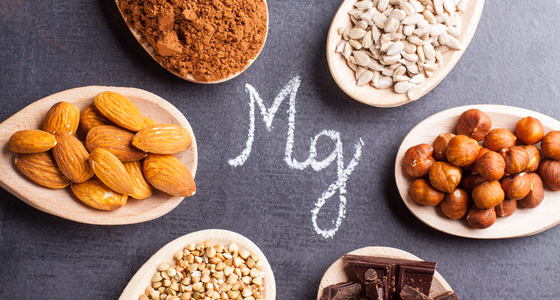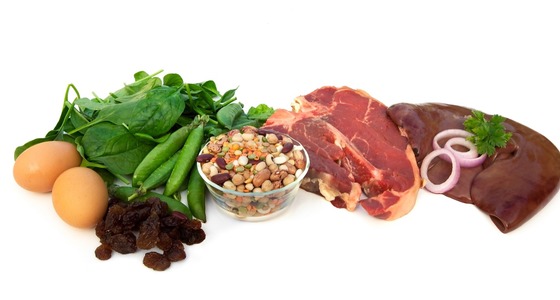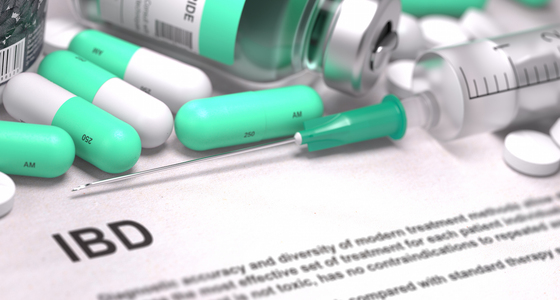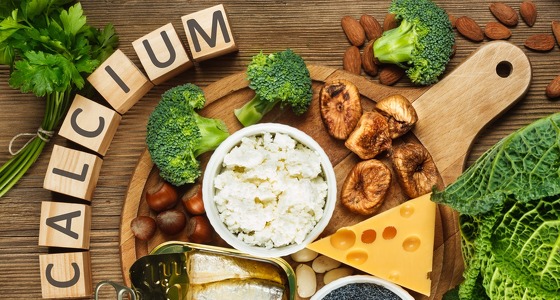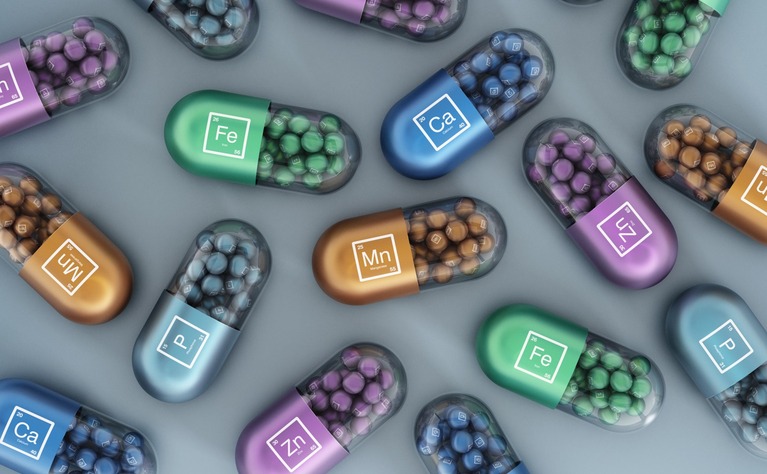
Unlike vitamins, which are organic compounds, minerals are inorganic and are extremely important in the structure of cells and their function. Macrominerals - such as calcium and potassium - are present in larger quantities within the body, whereas trace elements such as zinc are only needed in very small amounts for the body to function optimally.
Deficiencies in minerals can occur in patients with inflammatory bowel disease (IBD), especially those with Crohn’s disease as minerals are absorbed in the small bowel. Reduced food intake, malabsorption and taking certain medications can also be reasons why minerals are not being absorbed into your body.
Taking a supplement is one of the easiest ways to get nutrients into the body, especially if you are struggling with eating certain food groups. Below is a simplified guide to some of the main minerals that people with IBD may be deficient in and how they are important.
This post is for reference and providing information only. If you are thinking of taking any form of supplementation, you must consult your physician before doing so. IBDrelief cannot take any responsibility of any wrong doing or harm that may occur.
What is it? Calcium is the most abundant mineral in the human body, with 99% of it being stored in the skeleton. Calcium can be absorbed in two ways: 1) through dietary intake and 2) inside the cells that already exist, although the second absorption is dependent on vitamin D. Calcium is important to maintain and build strong healthy bones and contributes to the normal function of digestive enzymes.
Main site of absorption? Duodenum/jejunum
Why is it important for people with IBD? Many people with IBD tend to avoid dairy products due to its role in mediating an inflammatory response, or if they are lactose intolerant. Certain medications, particularly Prednisone steroid, can cause malabsorption, which can also happen in those that experience inflammation in the small intestine or have had a resection. Calcium can also become lost through diarrhoea, however this has not been well studied.
What form does it come in? Capsules, chewable tablet or a liquid. Calcium will most likely be supplemented together with vitamin D or magnesium.
How is it taken? Two capsules daily or as stated on the bottle. Numerous studies have recommended that a supplementation of 1000mg ‐ 1500mg is to be taken
Top 5 Foods that contain calcium? The top beneficial way to consume calcium is through yoghurt, cheese and milk however for those that avoid dairy products the top 5 foods are:
What is it? Iron is the most abundant mineral in the blood and contributes to numerous functions such as the immune system, energy metabolism, oxygen transportation and reduces tiredness and fatigue.
Main site of absorption? Duodenum
Why is it important for people with IBD? Iron deficiency is the leading cause of anaemia which is present in 36-90% of patients with IBD. This is down to most patients avoiding cruciferous vegetables, green leafy vegetables and also those who have adopted a vegetarian/vegan diet. Symptoms include fatigue, tiredness and decreased quality of life. Iron malabsorption and chronic gastrointestinal blood loss can also cause iron deficiency.
What form does it come in? Capsules, chewable or a liquid. Iron may be supplemented with B vitamins, folic acid or vitamin C. Recent research is indicating that intravenous (injection) may be the best form.
How is it taken? One capsule daily
Top 5 foods that contain iron?
What is it? Alongside iron, magnesium is another mineral that is extremely abundant in the human body which plays a fundamental role in most cellular reactions. Most people will recognise magnesium in the sports supplement ZMA which is a blend of vitamin B6, magnesium and zinc that is used to aid recovery, tiredness and muscle cramps. Also known to aid DOMS (delayed on set muscle soreness).
Main site of absorption? Duodenum/jejunum
Why is it important for people with IBD? Loss of magnesium can be caused by insufficient dietary intake, chronic diarrhoea and fistula output and malabsorption. Magnesium helps reduce tiredness and fatigue and contributes to muscle function. If you suffer with cramps and achy bones it may be an indication of a deficiency.
What form does it come in? Magnesium can be taken as ZMA which could be beneficial for those who work out regularly. It usually comes in capsules and must be taken on an empty stomach before sleep. Many people have reported that they have strange dreams or can’t sleep after taking it, starting off with a very small dose is recommended.
Recent research has shown that the best way to absorb magnesium is through transdermal magnesium products*. This means by applying magnesium straight to the skin it will be absorbed straight into the bloodstream and directly into the muscle. It can be used pre- workout, during workout and post-workout. Magnesium tends to make the skin feel itchy or tingly but after a few minutes it will reduce.
How is it taken?
Top 5 Foods that contain magnesium?
What is it? Potassium is an essential mineral that helps to regulate heart rate and muscles contract.
Main site of absorption? Ileum
Why is it important for people with IBD? Potassium malabsorption can occur with people with IBD as well as losses through chronic diarrhoea and steroid medication.
What form does it come in? The most popular form is through sports drinks, however these tend to be full of sugar and additives which are best to be avoided in people with IBD. One of the best ways to take potassium is through foods such as coconut water and/or eating bananas. Coconut water contains an abundant amount of electrolytes, vitamins and minerals which is great for replenishing salts lost from exercise or through illness.
How is it taken?
Top 5 Foods that contain potassium?
What is it? Zinc is an essential trace element which is important for the immune system, protein and collagen synthesis and wound healing. Most people will recognise zinc as the sports supplement ZMA which is a blend of vitamin B6, magnesium and zinc that is used to aid recovery, tiredness and muscle cramps. Also known to aid DOMS (delayed on set muscle soreness)
Main site of absorption? Unclear, but it is thought to be the small intestine.
Why is it important for people with IBD? Zinc deficiency can be related to chronic diarrhoea and malabsorption, however it is very difficult to measure this.
What form does it come in? Zinc can be taken as ZMA, which could be beneficial for those who work out regularly. It usually comes in capsules and must be taken on an empty stomach before sleep. Many people have reported that they have strange dreams or can’t sleep after taking it, starting off with a very small dose is recommended.
How is it taken? Zinc can be taken solely on its own with a meal. ZMA on an empty stomach before bed
Top 5 Foods that contain potassium?
*These are affiliate links
